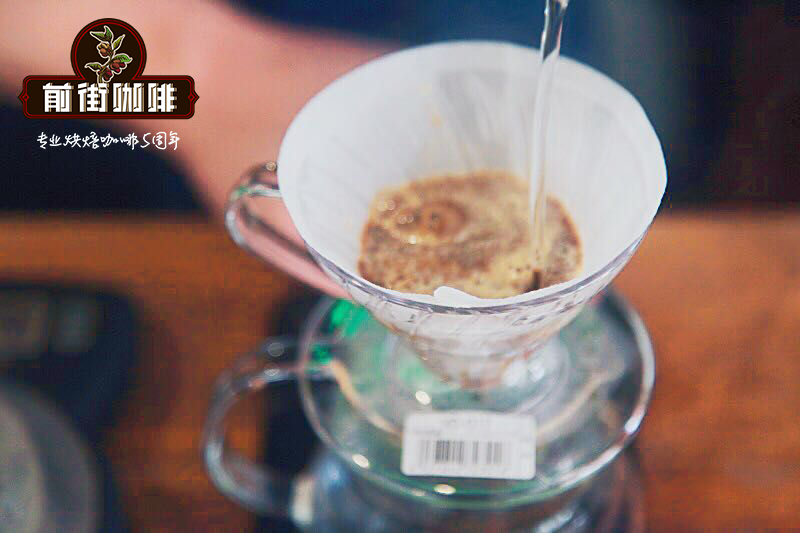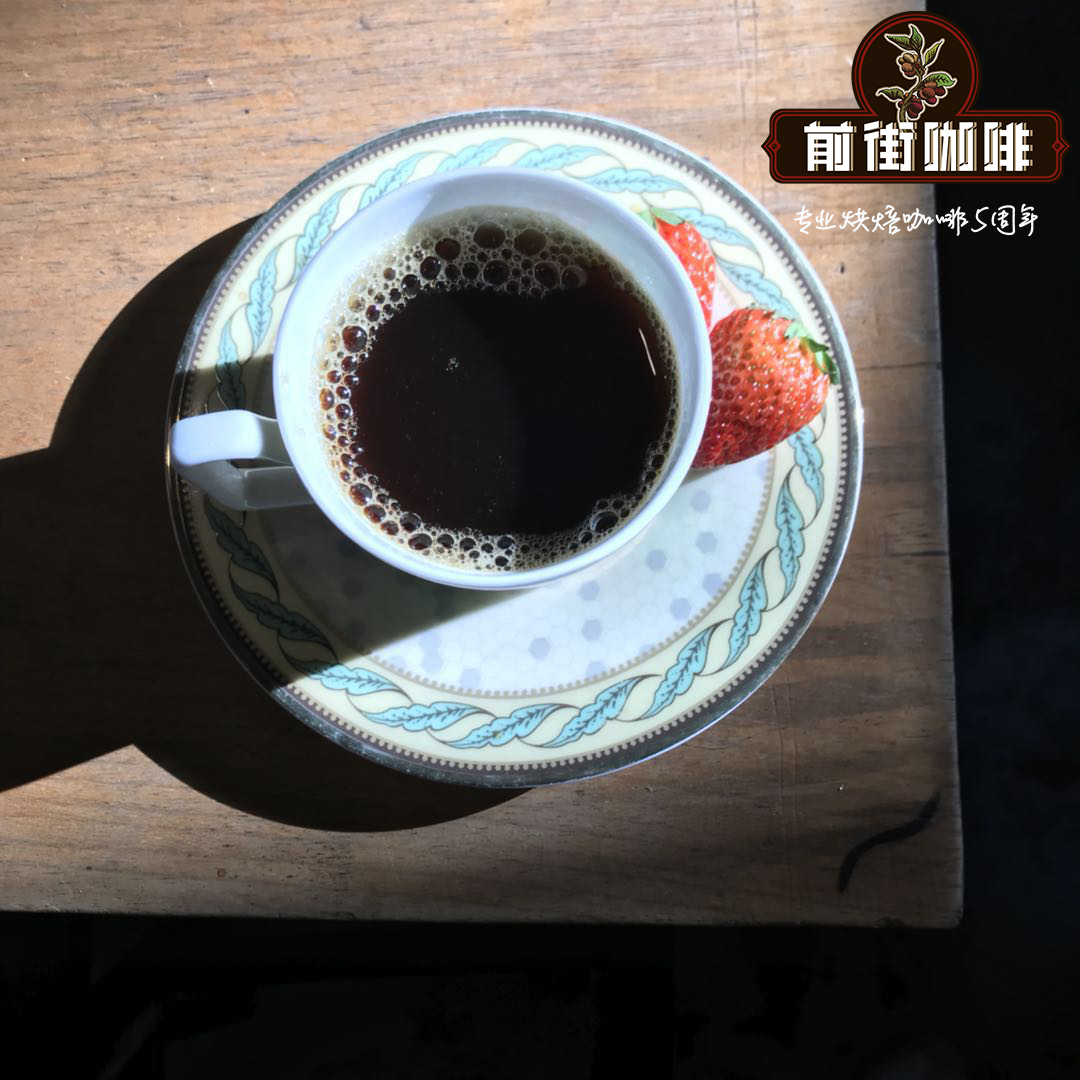Why is coffee bitter?

Professional coffee knowledge exchange more coffee bean information please follow the coffee workshop (Wechat official account cafe_style)
Why is coffee bitter? Is the bitterness really bad?
Bitterness has always been an unpleasant term in boutique coffee. Good coffee should be sweet and delicious, well-balanced, maybe sour, and make it taste good without sugar. But what makes coffee bitter? Is the bitterness really that bad? Let's see.
Doesn't it taste bitter?
In fact, the bitter taste is not so bad. In fact, if the coffee is not blended with bitter taste, it may taste too sour or too sweet. The key is "balance". A little bitterness can bring out more rich and diverse flavor levels, as long as the bitterness is not too heavy.
What is interesting, however, is that for most people, we can accept more bitter coffee than sour coffee.
However, coffee with too much bitterness is really bad, so let's look at what bitterness is and how to avoid bitterness when brewing.
What is bitterness?
Everyone has the experience of eating bitterness, but there are often situations in which you eat bitterness while others do not. This is the sensory cognition of taste, which means that sensory feelings vary from person to person.
It is also important to note that taste is not just about creating bitterness. The word flavor represents the gathering of many things, including smell, mood, music and even altitude. However, this is not the content of this article. Now let's focus on the sense of taste and the bitterness of coffee from a scientific point of view.

The science of bitter taste
People used to think that the tongue has different distribution of taste senses, such as sweet, salty, sour and bitter. But now we all know that these flavors can be felt in any part of the tongue.
Because there are a lot of proteins in the sensory cells of our tongue, about 35 proteins react with compounds in food to produce a bitter taste, according to the American Institute of Medical quality and efficiency.
This means that bitterness comes from substances called phenols in coffee, the most common of which is also called chlorogenic acid, which we will discuss later. This substance accounts for about 8% of raw coffee beans in Arabica, and it has a great effect on the taste of coffee.
There are many kinds of chlorogenic acid, and we only need to know the two most special ones. Chlorogenic acid: the most common compound in raw beans, di-CGA reflects the main substance of coffee bitterness.
Although most of the bitterness of coffee comes from quinic acid, some studies have pointed out that caffeine can also affect bitterness, but the effect of caffeine on bitterness is secondary at best.
The bitterness from raw beans
When we talk about the bitterness of coffee, we often think of roasting, but in fact some coffee contains more bitterness than others.
First of all, robusta coffee is more bitter than Arabica because it has higher levels of chlorogenic acid and caffeine. Robusta's chlorogenic acid reaches 10% in the raw bean state, while Arabica only 2%. In addition, Robusta has more than twice as much caffeine as Arabica.
However, it is not just coffee varieties that affect bitterness. in 2006, the Brazilian Journal of Plant Physics published a study on phenolic compounds: "Variety, genetics, maturity, external environmental factors and planting environment." are important factors that affect the content of quinic acid in raw beans, which in turn affects the last cup of coffee.
The influence of the treatment method, especially the monsoon treatment, is also mentioned in the study. This is a traditional treatment in India, which exposes raw beans to high humidity monsoon conditions, which can reduce the chlorogenic acid and bitterness of raw beans.
As for the maturity of coffee fruits, studies have pointed out that "for example, unripe beans contain more quinic acid, which is why a cup of coffee is so bitter when there are many unripe beans."
Does roasting add bitterness to the coffee?
During baking, chlorogenic acid changes and decomposes. Although the main bitterness of coffee comes from chlorogenic acid, in fact chlorogenic acid itself does not have a bitter taste! Chlorogenic acid breaks down into "chlorogenic acid lactones" and "phenyllindane" when baked. In 2007, pioneer scholar Thomas Hofmann pointed out that phenyllindane can produce some bitterness, in addition, phenyllindane can also affect the flavor of coffee roasting.
Light-roasted to medium-roasted coffee has more chlorogenic acid lipids, which Hofmann describes as a "pleasant, high-quality bitter taste". The deeper-roasted coffee has more phenyl lindane, which "tastes bitter and remains in the mouth".
So light to medium roasted coffee will have a lower bitter taste and retain the original aroma and flavor of the coffee. But of course bitterness is a subjective feeling. Just because you don't like bitterness doesn't mean other people don't like it.
How to avoid bitterness when cooking
Can you avoid bitterness if you buy a light baked high-quality Arabica? Not necessarily. Whether you brew it yourself or by a professional barista, it will still affect the flavor in the last cup.
Do not over-extract coffee to avoid bitterness, as bitterness is released in large quantities only in the latter part of brewing. There are many reasons for extraction: cooking method, grinding thickness, water temperature, cooking time, etc., and the following suggestions.
First of all, no matter what brewing method is used, make sure that the coffee is ground thick and fine. the finer the grinding, the larger the surface area of the coffee powder. although the stronger coffee is extracted, it also increases the risk of over-extraction.
The next step is to confirm the temperature of the boiling water. The higher the water temperature, the more substances extracted. If the coffee bean tastes bitter, it is recommended to cook it at a lower water temperature.
Next, it depends on the brewing time. If the coffee is bitter, it may take too long to brew.
Finally, remember that the extraction is to achieve the overall balance, if you adjust the cooking factors, such as adjusting the grinding thickness, then the cooking time will also be affected.
A delicious cup of coffee needs to gather the right grinding thickness, water temperature and brewing time. Source:
Bitterness is not always that bad, but there will be problems if bitterness covers other flavors. However, after you read this article and understand the source of the bitterness of coffee, we can explore how to control these factors.
Follow the suggested steps to find out the balance of taste and flavor you like in the coffee.
Important Notice :
前街咖啡 FrontStreet Coffee has moved to new addredd:
FrontStreet Coffee Address: 315,Donghua East Road,GuangZhou
Tel:020 38364473
- Prev

Why is coffee sweet? coffee tastes sweet and why? Where does the sweetness of coffee come from
Professional coffee knowledge exchange more coffee bean information please follow the coffee workshop (Wechat official account cafe_style) what is sweet? A widely accepted definition of sweetness is the taste of a high concentration of sugar in food. There are many kinds of sweet items, the most famous being carbohydrates.
- Next

Ye Jia Xuefei how to choose? We found a way!
How to choose "Yega Xuefei"? Methods to find a professional coffee knowledge exchange more coffee bean information please follow the coffee workshop (Wechat official account cafe_style) often hear coffee drinking friends mention "Yejia Xuefei"? New to coffee, want to quickly understand the beauty of coffee? I feel that the coffee is bitter and astringent, and I wonder what's good about it. I sincerely suggest that you feel the charm of good coffee.
Related
- Beginners will see the "Coffee pull flower" guide!
- What is the difference between ice blog purified milk and ordinary milk coffee?
- Why is the Philippines the largest producer of crops in Liberia?
- For coffee extraction, should the fine powder be retained?
- How does extracted espresso fill pressed powder? How much strength does it take to press the powder?
- How to make jasmine cold extract coffee? Is the jasmine + latte good?
- Will this little toy really make the coffee taste better? How does Lily Drip affect coffee extraction?
- Will the action of slapping the filter cup also affect coffee extraction?
- What's the difference between powder-to-water ratio and powder-to-liquid ratio?
- What is the Ethiopian local species? What does it have to do with Heirloom native species?

